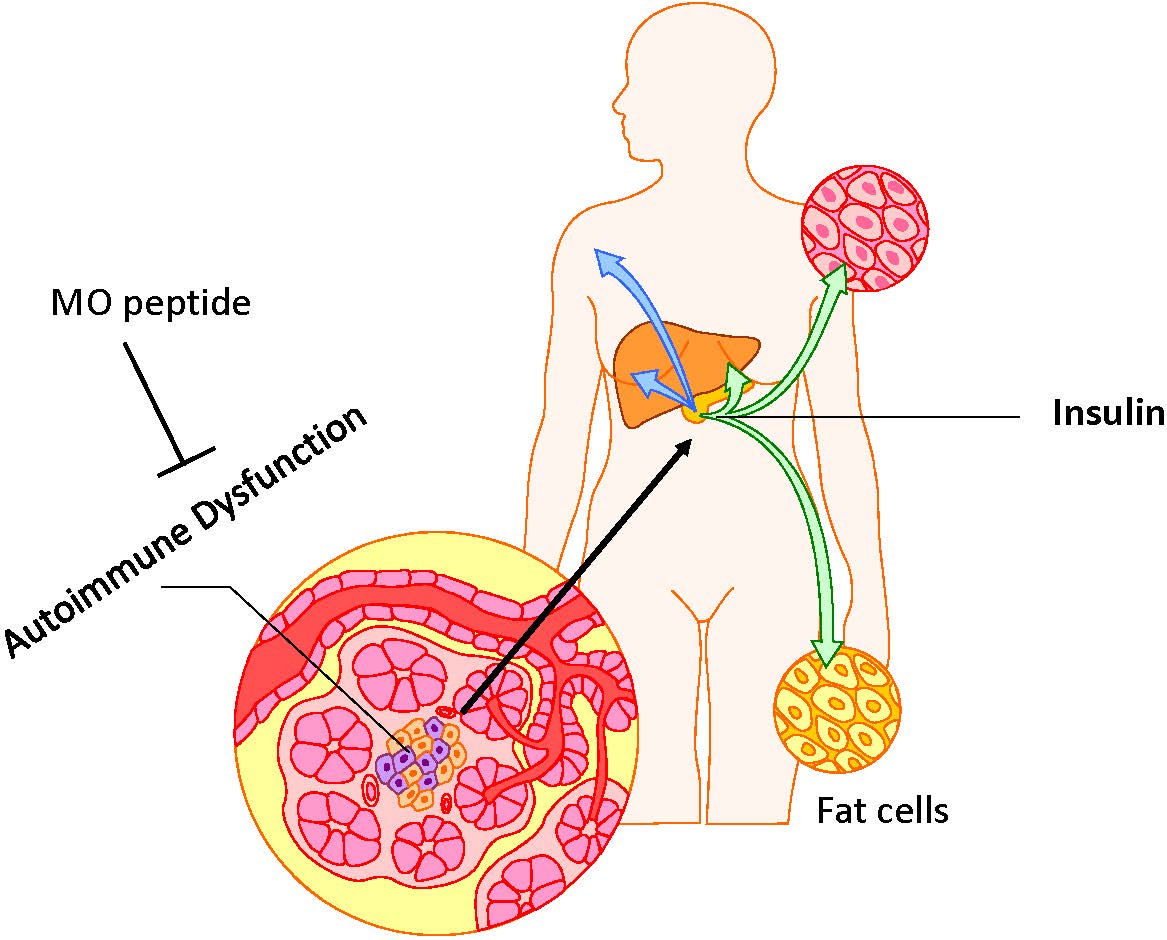Advances in Stem Cell and Regenerative Therapies in Autoimmune and Metabolic Diseases: Implications for Healthy Longevity
DOI:
https://doi.org/10.13052/ijts2246-8765.2024.023Keywords:
Autoimmunity, diabetes, stem cell, peptidesAbstract
Type 1 diabetes (T1D) is an important autoimmune disease characterized by the destruction of insulin-secreting β-cells in pancreatic islets of Langerhans resulting in hyperglycemia. More than 1.3 people in United States are suffering from T1D, and current treatments have failed to offer a lasting cure. T1D management requires lifelong daily injections of exogenous insulin to control blood sugar levels and secondary complications of this progressive disease, unless receiving pancreas or islet transplant with its associated risks from immunosuppression.
Peptide therapy aims to alter the response of cells by inducing or reducing cellular responses appropriate to the type of peptides used. The aim of this study was to investigate the protective effect on autoimmunity of Mito Organelle (MO) Peptides on the function and survival of peptides on pancreatic β-cells in non-obese diabetes (NOD) mice model. MO peptide product (Biopep Inc) is a mixture of organ-specific cellular extracts that were extracted from organ specific cells, homogenized, filtered, and sterilized.
MO Peptides administered twice-weekly (IM) over 17-week period in NOD mice model were able to prevent the progression of autoimmune-mediated β–cell destruction and the onset of hyperglycemia (blood glucose >300 mg dL) as compared to the saline treated control mice.
These studies will help understand the mechanisms of immunological protection in T1D and may serve as a model for other autoimmune disorders with peptides.
Downloads
References
American Diabetes Association, ‘Economic Costs of Diabetes in the U.S. in 2017’, Diabetes Care, pp. 917–928, May, 2018.
G. Imperatore, E.J. Mayer-Davis, T.J. Orchard, et al., ‘Prevalence and Incidence of Type 1 Diabetes Among Children and Adults in the United States and Comparison with Non-U.S. Countries’, In: Diabetes in America, 3rd edition, Chapter 2, Bethesda, Aug., 2018.
M. Wallberg, A. Cooke, ‘Immune mechanisms in type 1 diabetes’, Trends in Immunology, pp. 583–591, Dec., 2013.
K.C. Navegantes, et al., ‘Immune modulation of some autoimmune diseases: the critical role of macrophages and neutrophils in the innate and adaptive immunity’, J Transl Med, pp. 36, Feb, 2017.
D. Klokol, L. Nallenthiran, M.K.S. Chan, et al., ‘Cell therapy as the main stratagem of anti-aging and regenerative medicine’, Europ J Pharm Med Res, pp. 295–299, May, 2019.
A.C. Lee, J.L. Harris, K.K. Khanna, et al., ‘A comprehensive review on current advances in peptide drug development and design’, Int J Mol Sci, pp. 2383, May, 2019.
B.G. De La Torre, F. Albericio, ‘Peptide therapeutics 2.0’, Molecules, pp. 2293, May, 2020.
E.L. Smith, M. Peakman, ‘Peptide immunotherapy for type 1 diabetes-clinical advances’, Frontiers in Immunol, pp. 392, Feb., 2018.
A. Jansen, F. Homo-Delarche, H. Hooijkaas, et al., ‘Immunohistochemical characterization of monocytes-macrophages and dendritic cells involved in the initiation of the insulitis and beta-cell destruction in NOD mice’, Diabetes, pp. 667–675, May, 1994.
E.H. Leiter, M. Prochazka, D.L. Coleman, ‘The non-obese diabetic (NOD) mouse’, The American J of Pathol, pp. 380-383, Aug., 1987.
B.S. Kong, S.H. Min, C. Lee, et al., ‘Mitochondrial-encoded Mots-C prevents pancreatic islet destruction in autoimmune diabetes’, Cell Reports, pp. 109447, Jul., 2021.
D. Klokol, M.K.S. Chan, M.B.F. Wong, ‘European wellness – the evidenced rationale behind the biological medicine: ad astra per aspera’, J Pharm Biomed Sci, pp. 19–22, 2017.
R. Moya, M.K.S. Chan, M.B.F. Wong, et al., ‘Active specific immunotherapy (asi) in cancer treatment: five case reports’, J Cancer Sci Ther, pp. 256–259, 2019.
D. Klokol, L. Nallenthiran, M.K.S. Chan, et al., ‘Cell therapy as the main stratagem of anti-aging and regenerative medicine’, Europ J Pharm Med Res, pp. 295–299, Jun., 2019.
C. Lee, J. Zeng, B.G. Drew, et al., ‘The mitochondrial-derived peptide mots-c promotes metabolic homeostasis and reduces obesity and insulin resistance’, Cell metabolism, pp. 443–454, Mar, 2015.
D. Wu, E. Kampmann, G. Qian, ‘Novel insights into the role of mitochondria-derived peptides in myocardial infarction’, Frontiers in Physiology, pp. 750177, Oct., 2021.
P. Thapa, D.L. Farber, ‘The role of the thymus in the immune response’, Thoracic Surgery Clinics, pp. 123–131, May, 2019.
B. Saberzadeh-Ardestani, R. Karamzadeh, M. Basiri, ‘Type 1 diabetes mellitus: cellular and molecular pathophysiology at a glance’, Cell Journal, pp. 294–301, May, 2018.



